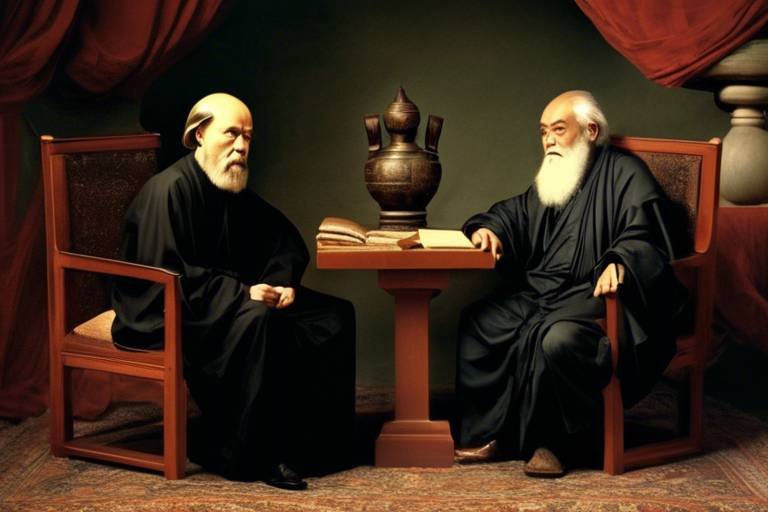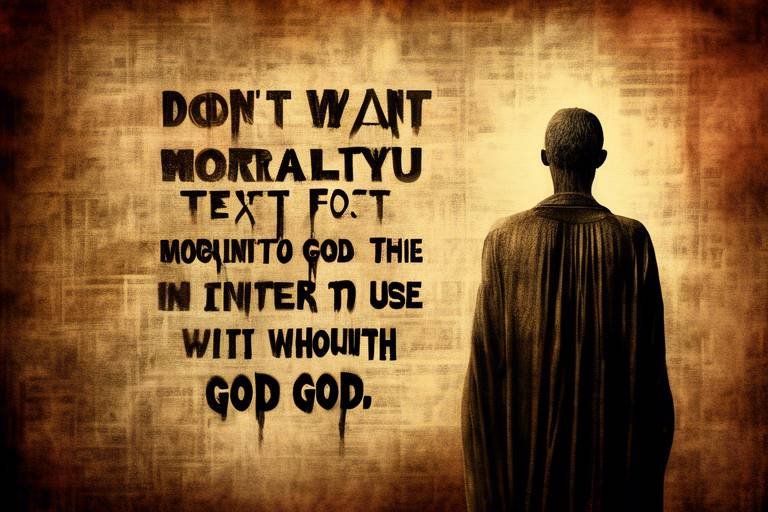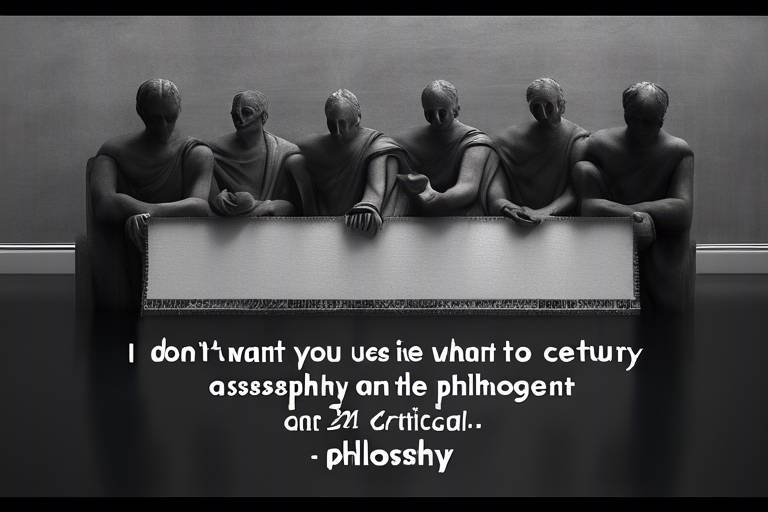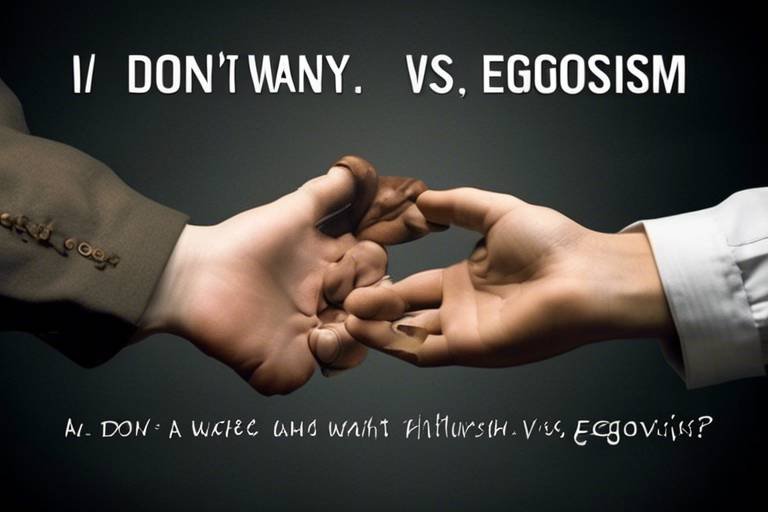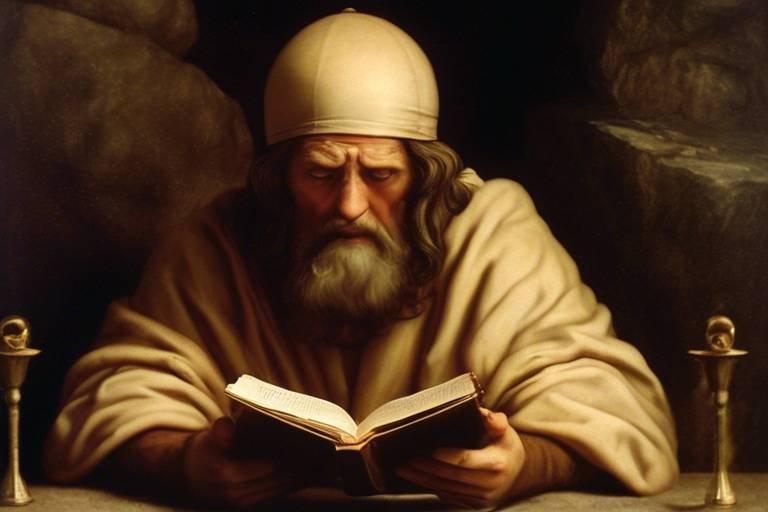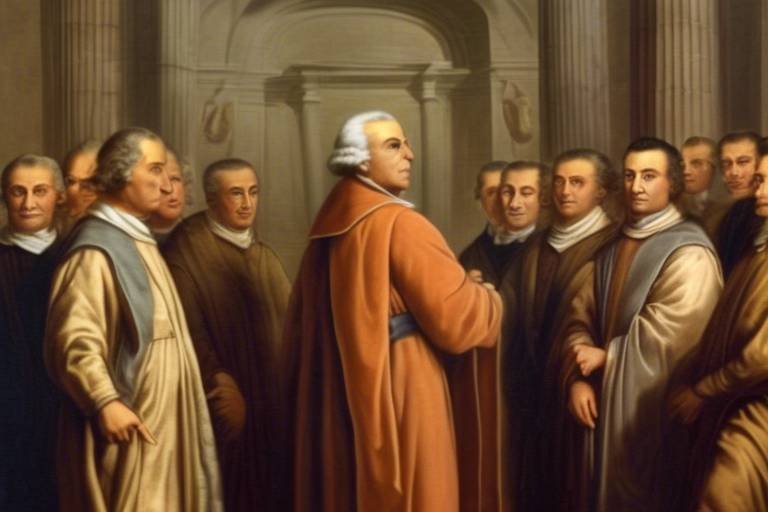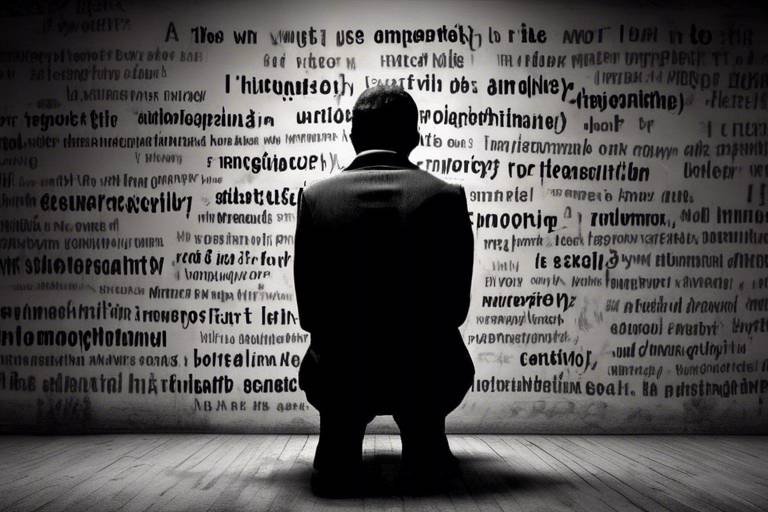Libertarianism in Philosophy and Politics
Libertarianism is more than just a political ideology; it’s a profound philosophy that champions the ideals of individual freedom and personal responsibility. At its core, libertarianism argues that each person has the right to make choices about their own life, as long as those choices do not infringe upon the rights of others. This principle of non-aggression is pivotal, serving as a guiding light for libertarians as they navigate the complex waters of political discourse.
Imagine a world where individuals are free to pursue their own happiness without unnecessary interference from the government. This is the world that libertarians aspire to create. They believe that the best way to achieve a prosperous society is to allow people to operate within a framework of voluntary cooperation rather than coercive control. The implications of this philosophy extend beyond mere politics; they touch on ethics, economics, and social structures, creating a rich tapestry of ideas that challenge conventional wisdom.
In the realm of politics, libertarianism often finds itself at odds with more interventionist ideologies. While many political systems advocate for a strong government presence in various aspects of life—be it through regulation, taxation, or social programs—libertarians argue for a minimalist approach. They contend that a smaller government not only fosters greater personal freedom but also enhances overall societal well-being by allowing market forces to flourish.
As we delve deeper into the principles of libertarianism, it becomes evident that its philosophical roots are deeply intertwined with the concepts of free will and autonomy. These ideas are not just abstract notions; they have real-world implications on how societies are structured and how individuals relate to one another. The debates surrounding libertarianism often revolve around questions of morality, ethics, and the role of government, making it a vibrant and sometimes contentious topic in political theory.
Ultimately, libertarianism invites us to reconsider the balance between state power and individual freedom. It challenges us to think critically about the role of government in our lives and encourages a culture of self-reliance and personal accountability. As we explore the foundations and implications of this ideology, we will uncover the key thinkers and ideas that have shaped libertarian thought and continue to influence political discourse today.
- What is the main principle of libertarianism?
Libertarianism primarily advocates for individual liberty and minimal government intervention in personal and economic matters. - Who are some key figures in libertarian philosophy?
Prominent figures include John Locke, Friedrich Hayek, and more contemporary thinkers like Milton Friedman. - How does libertarianism view the role of government?
Libertarians believe that the government should have a minimal role, primarily focused on protecting individual rights and maintaining order. - What is the non-aggression principle?
The non-aggression principle is a core tenet of libertarian ethics, asserting that aggression against others is inherently wrong.
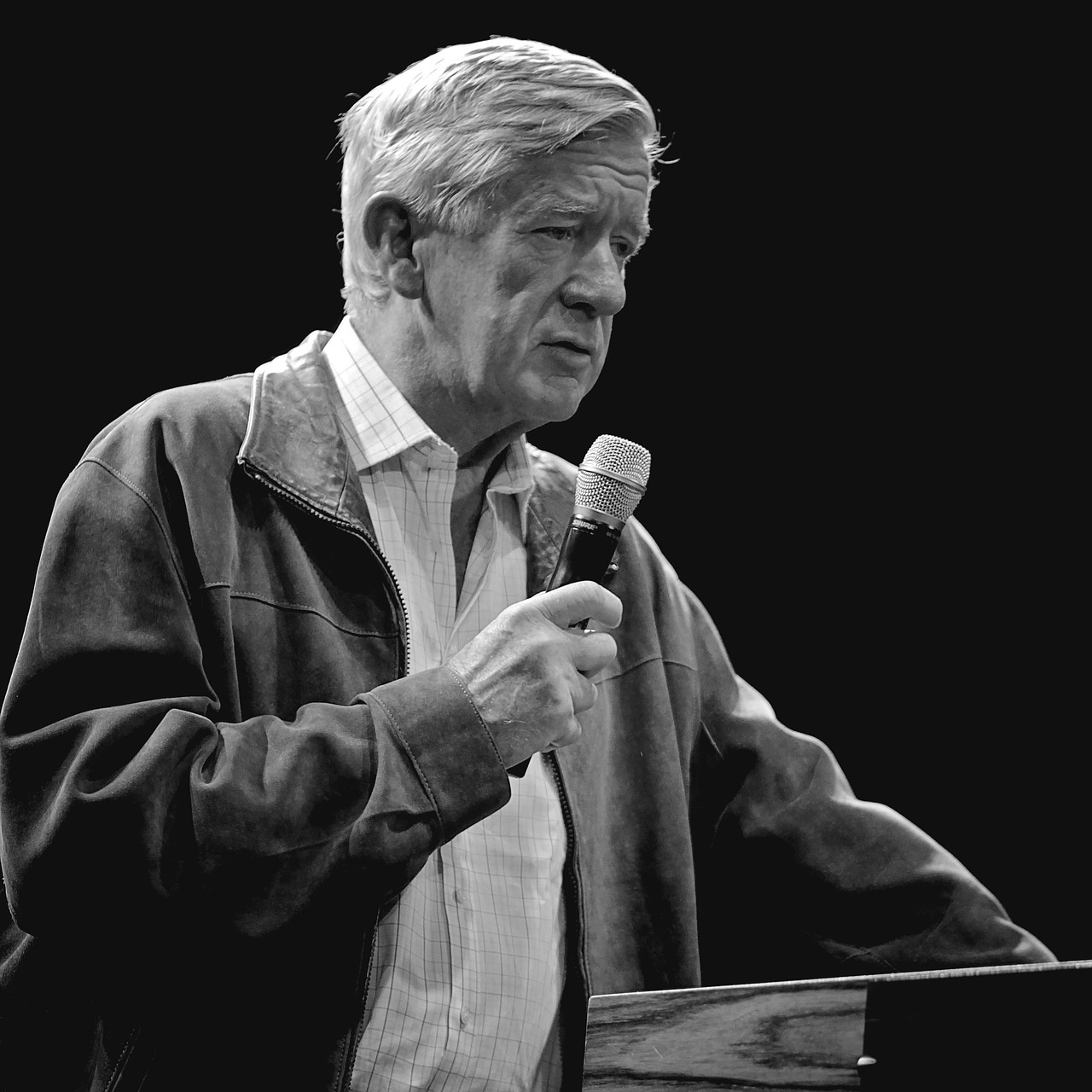
Foundations of Libertarian Philosophy
Libertarianism is not just a political ideology; it is a profound philosophy rooted in the principles of individual liberty and personal responsibility. At its core, libertarianism champions the idea that each person has the right to make choices about their own life, free from coercion or interference. This emphasis on freedom is deeply intertwined with the concepts of free will and the moral implications of autonomy. Imagine a world where every individual is the captain of their own ship, navigating through life’s turbulent waters without an overbearing government dictating their course. That’s the essence of libertarian thought.
The philosophical foundations of libertarianism can be traced back to Enlightenment thinkers who emphasized reason, individualism, and skepticism of authority. These ideas challenge the notion that the state has the right to control individuals, suggesting instead that people are capable of governing themselves. This belief in self-governance is not just idealistic; it is practical. When individuals are empowered to make their own decisions, they tend to act in ways that are beneficial not only to themselves but also to society as a whole.
Central to libertarian philosophy are the concepts of natural rights and self-ownership. Natural rights, as articulated by philosophers like John Locke, argue that individuals inherently possess rights to life, liberty, and property. These rights are not granted by the state but are inherent to our humanity. Self-ownership extends this concept, positing that individuals own themselves and have the right to control their own bodies and lives. This idea raises important questions: If we own ourselves, what right does anyone else have to dictate our actions?
Moreover, libertarianism posits that the role of government should be limited to protecting these natural rights. This leads to a critical examination of the social contract—a theory that suggests individuals consent to form a government to protect their rights. However, libertarians argue that this consent must be explicit and that any government action beyond protecting individual rights is illegitimate. This raises the question: How much government intervention is too much? The answer, according to libertarians, is that any interference that infringes upon individual liberty is unjustifiable.
To further illustrate the foundations of libertarian philosophy, consider the following key principles:
- Individualism: Each person is unique and should have the freedom to pursue their own path.
- Voluntary Association: Interactions between individuals should be based on consent and mutual agreement.
- Free Markets: Economic transactions should occur without government interference, allowing for competition and innovation.
- Minimal Government: The state's role should be restricted to protecting rights rather than regulating personal choices.
In conclusion, the foundations of libertarian philosophy are built upon a robust understanding of individual rights, autonomy, and the limitations of government. By advocating for a society where individuals are free to make their own choices, libertarianism offers a compelling vision of a world where personal responsibility reigns supreme. As we delve deeper into the key thinkers and their contributions to this ideology, we will see how these foundational concepts continue to resonate in contemporary discussions about liberty and governance.
- What is libertarianism? Libertarianism is a political philosophy that emphasizes individual liberty, personal responsibility, and minimal government intervention.
- Who are some key libertarian thinkers? Prominent figures include John Locke, Friedrich Hayek, and more contemporary thinkers like Milton Friedman.
- What is the non-aggression principle? This principle asserts that individuals should not initiate force against others and that all interactions should be voluntary.
- How does libertarianism view the role of government? Libertarians advocate for a minimal government that exists primarily to protect individual rights.

Key Libertarian Thinkers
When diving into the world of libertarianism, it’s impossible to overlook the profound impact of key thinkers who have shaped its core principles. These individuals have not only influenced political discourse but have also laid the groundwork for understanding individual liberty and personal responsibility. Among them, John Locke and Friedrich Hayek stand out as towering figures whose ideas continue to resonate in modern libertarian thought.
Locke, often referred to as the father of liberalism, introduced concepts that are foundational to libertarian philosophy. His belief in natural rights—life, liberty, and property—forms the bedrock of individual freedom. Locke argued that individuals inherently possess rights that cannot be infringed upon by others, including the government. This idea of inherent rights is not just a philosophical musing; it has real-world implications for how societies should be structured. It raises essential questions: What rights do we possess? Who has the authority to protect them? And what happens when those rights are threatened?
Locke’s theories on natural rights and government consent are fundamental to libertarian philosophy. His assertion that government should be based on the consent of the governed is revolutionary. It suggests that citizens have the right to challenge authority and demand accountability. This notion directly ties into the concept of individual liberty, emphasizing that people should have the freedom to make choices about their own lives, as long as they do not infringe upon the rights of others.
At the heart of Locke's philosophy is the social contract theory, which posits that individuals come together to form a government to protect their rights. This agreement is not a surrender of freedom but a mutual understanding that allows for the establishment of a governing body that serves the people. Locke believed that if a government fails to uphold its end of the bargain—protecting the rights of its citizens—then the people have the right to revolt. This radical idea empowers individuals, placing them at the center of political authority.
Locke's views on property rights are crucial to libertarian thought. He famously argued that property is a natural extension of labor; when individuals mix their labor with resources, they create ownership. This concept not only legitimizes personal property but also underscores the importance of protecting these rights against infringement. In a libertarian society, property rights are not merely legal constructs; they are viewed as essential to individual freedom and economic prosperity. The implications of this are profound, as they advocate for minimal government interference in personal and economic affairs.
Moving on to the 20th century, we encounter Friedrich Hayek, another pivotal figure in the libertarian movement. Hayek’s economic theories emphasize the importance of free markets and the dangers of central planning. He argued that no central authority could effectively allocate resources as efficiently as a free market driven by individual choices. Hayek introduced the concept of spontaneous order, suggesting that order in society arises naturally when individuals are free to pursue their interests. This idea challenges the belief that government intervention is necessary for societal organization, highlighting instead the power of voluntary cooperation.
In essence, the contributions of Locke and Hayek have created a rich tapestry of thought that continues to inspire libertarians today. Their ideas encourage a society where freedom is paramount, and individuals are empowered to make choices that affect their lives. As we explore the implications of these philosophies further, we’ll see how they interact with the role of government and the ethical considerations within libertarianism.
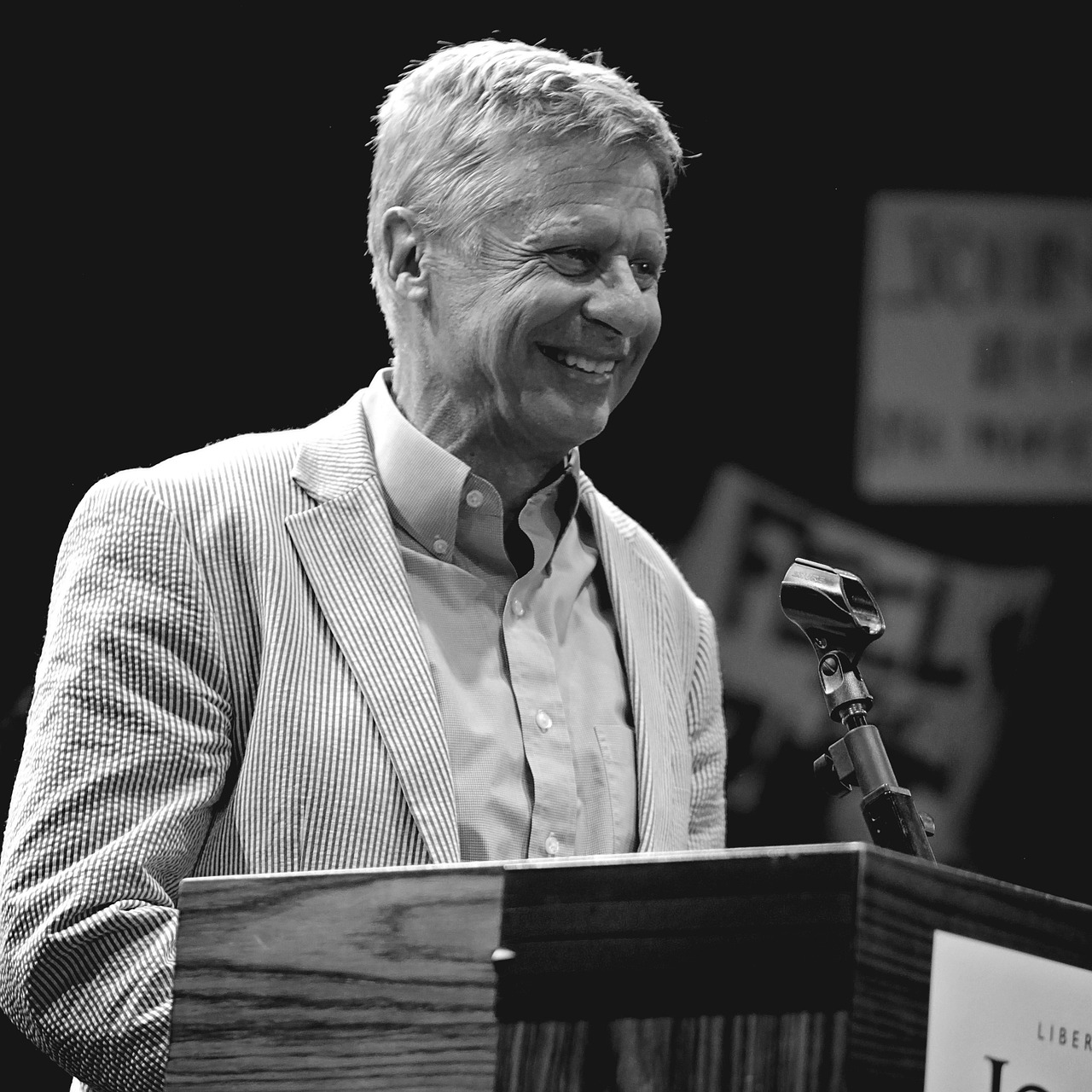
John Locke's Influence
John Locke, often hailed as the father of liberalism, has had a profound impact on the development of libertarian philosophy. His ideas about natural rights and the concept of government by consent have become foundational to the libertarian worldview. Locke argued that individuals are born with certain inalienable rights, including life, liberty, and property. This notion of natural rights is not just philosophical jargon; it serves as a rallying cry for those who believe in personal freedom and the right to pursue happiness without undue interference from the state.
Locke's influence extends beyond mere theory; it has practical implications for how we view government and authority. According to Locke, the legitimacy of any government is derived from the consent of the governed. This idea challenges the notion of absolute authority and places the power firmly in the hands of the people. If a government fails to protect the rights of its citizens, Locke asserted that individuals not only have the right but the duty to revolt. This radical idea laid the groundwork for many democratic movements and revolutions, including the American Revolution, where the principles of liberty and self-governance took center stage.
One of the most significant contributions of Locke to libertarian thought is his social contract theory. He proposed that individuals come together to form a society and agree to create a government that will protect their rights. This agreement is not a surrender of freedom but rather a mutual understanding to ensure that everyone can enjoy their rights without infringing on others. The essence of the social contract is that it is a voluntary association, and any government that oversteps its bounds loses its legitimacy.
Locke also emphasized the importance of property rights. He believed that property is an extension of individual liberty; when people mix their labor with resources, they create ownership. This view is crucial for libertarians, who argue that property rights are essential for a free society. Locke’s assertion that "property is a natural right" has led to robust debates about wealth distribution and the role of government in regulating property. Libertarians often cite Locke to defend against government interventions that they see as encroachments on personal freedom and economic prosperity.
In summary, John Locke's influence on libertarianism cannot be overstated. His ideas about natural rights, the social contract, and property rights form the bedrock of libertarian philosophy. By advocating for individual liberty and limited government, Locke has inspired generations of thinkers and activists who continue to fight for a society where freedom is paramount.
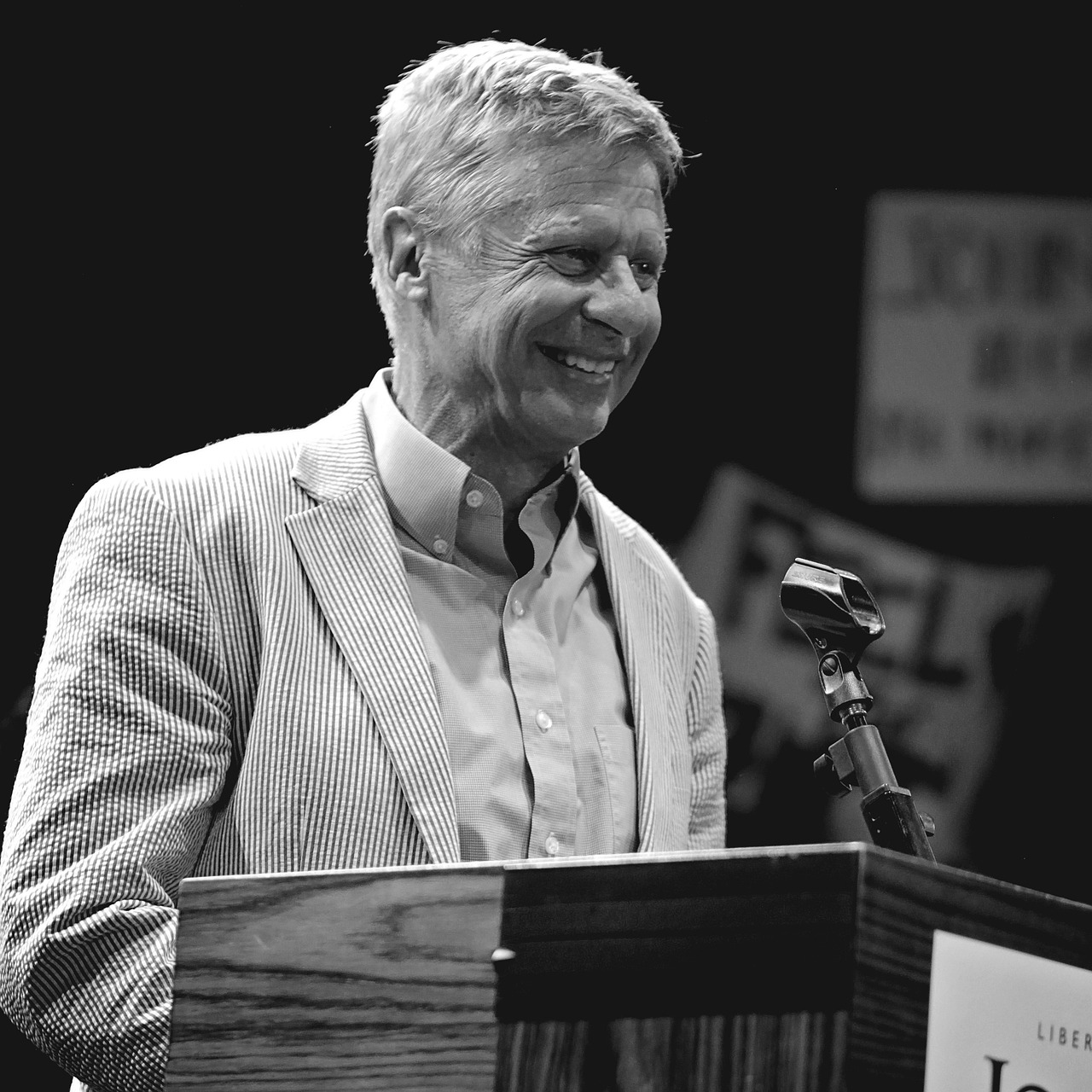
Social Contract Theory
The , as proposed by John Locke, is a fascinating framework that seeks to explain the legitimacy of governmental authority and the rights of individuals. Imagine, if you will, a time before governments existed—a time when individuals lived in a state of nature. In this state, everyone had the freedom to do as they pleased, but this freedom came with its own set of challenges and dangers. People often found themselves in conflict over resources, leading to a chaotic existence. This is where the social contract comes into play.
Locke argued that individuals, in order to escape the perils of this chaotic existence, collectively agreed to form a government. This agreement, or social contract, was based on mutual consent and aimed to protect the natural rights of life, liberty, and property. In essence, individuals traded a portion of their absolute freedom for the security and order that a governing body could provide. It’s like trading in a wild horse for a reliable car; you give up some freedom of movement but gain safety and structure on the road.
However, the legitimacy of this social contract hinges on one critical aspect: consent. According to Locke, a government only holds power if it has the consent of the governed. If it oversteps its bounds or fails to protect the rights of its citizens, the social contract is broken, and the people have the right to revolt. This idea is revolutionary because it places the power firmly in the hands of the individual rather than the state. It’s a reminder that governments are not rulers by divine right but are instead servants of the people.
Locke's social contract also emphasizes that the government's primary role is to safeguard individual rights. This leads us to consider the implications of government actions on our freedoms. For instance, if a government imposes excessive taxes or enacts laws that infringe upon personal liberties, it risks violating the social contract. Thus, the relationship between the individual and the state is a delicate balance, akin to a tightrope walker navigating between the need for order and the desire for freedom.
In a practical sense, the social contract theory can be summarized in a few key points:
- Mutual Consent: Individuals agree to form a government to ensure order and protection.
- Protection of Rights: The government’s primary role is to protect the natural rights of individuals.
- Right to Revolt: If a government fails to uphold its end of the contract, the people have the right to challenge it.
In conclusion, the social contract theory not only lays the groundwork for understanding the relationship between individuals and their government but also serves as a powerful reminder of the importance of consent and individual rights. It challenges us to think critically about the structures of power in our society and encourages a vigilant stance against any encroachment on our freedoms. As we navigate the complexities of modern governance, Locke’s insights continue to resonate, urging us to ensure that our social contract remains robust and respectful of our inherent rights.
- What is the social contract theory? The social contract theory is a philosophical concept that explains the legitimacy of government authority based on the consent of the governed.
- Who proposed the social contract theory? John Locke is one of the key figures associated with the social contract theory, emphasizing individual rights and government consent.
- What happens if the social contract is broken? If a government violates the social contract by failing to protect individual rights, citizens have the right to revolt against it.
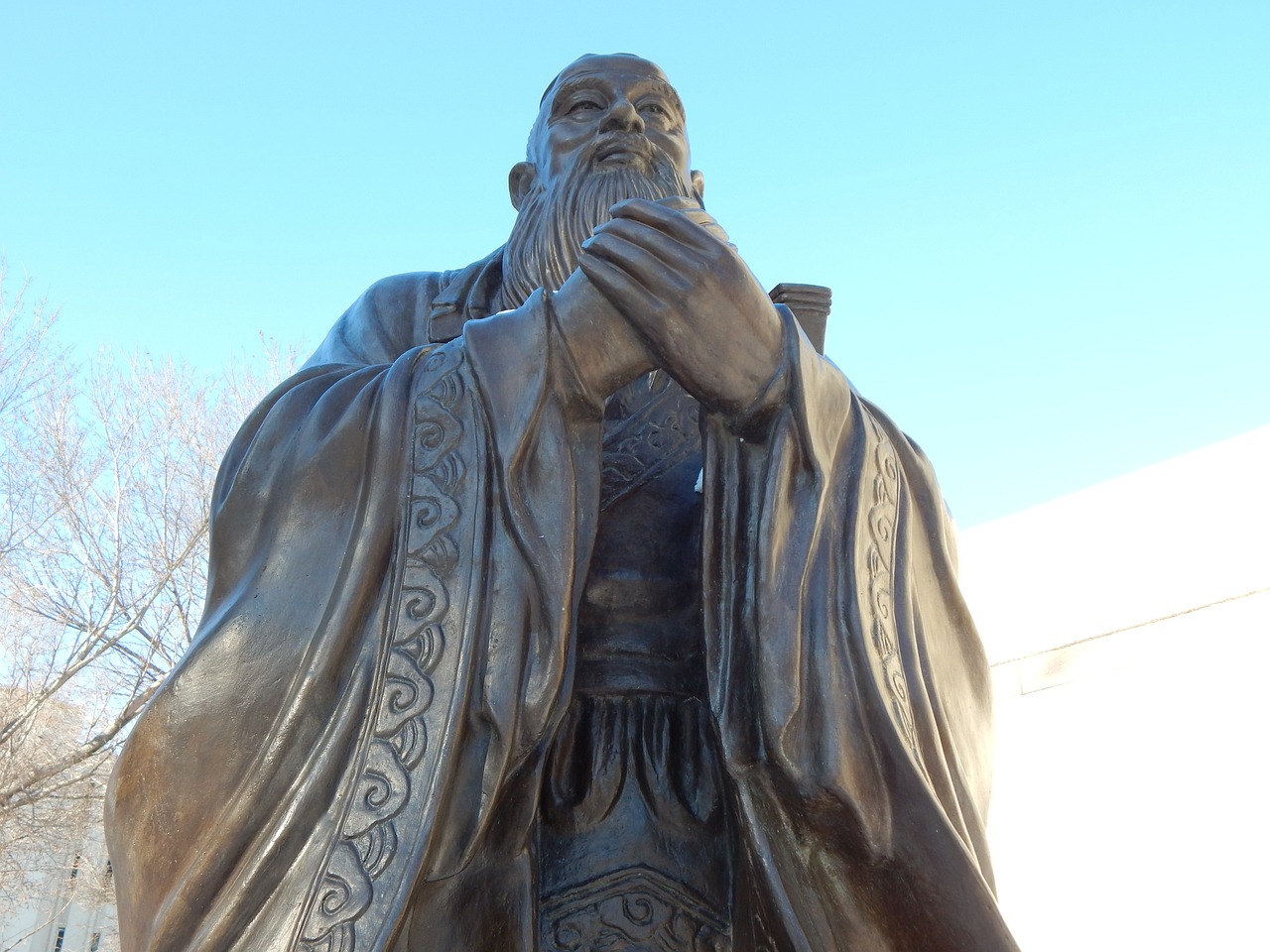
Property Rights
When we talk about , we dive into one of the most pivotal concepts in libertarian thought. At its core, property rights are about the ownership and control of resources, and they form the backbone of a free society. Imagine a world where your hard-earned possessions could be taken away at any moment—sounds chaotic, right? That's why property rights are essential; they ensure that individuals have the autonomy to manage their own affairs without undue interference.
John Locke, a key figure in the development of libertarian philosophy, argued that property rights are not just social constructs but are derived from natural law. According to Locke, when individuals mix their labor with natural resources, they create ownership. This perspective is revolutionary because it shifts the focus from collective ownership to individual rights. For instance, if you plant a garden, that garden becomes your property because you have invested your time and effort into it. This idea is foundational for libertarians, who believe that respecting property rights is crucial for a harmonious society.
Moreover, property rights are intertwined with the concept of freedom. When individuals have secure property rights, they can engage in voluntary exchanges, innovate, and invest in their futures. Without these rights, people are less likely to take risks, which stifles creativity and economic growth. Think of property rights as the soil in which the seeds of entrepreneurship can grow. If the soil is fertile—meaning property rights are respected—those seeds can sprout into flourishing businesses and thriving communities.
However, the implications of property rights extend beyond mere ownership. They also raise questions about social responsibility and the environment. For example, if a factory owner pollutes the local river, how do we balance the owner's property rights with the community's right to a clean environment? This is where debates within libertarian circles become intriguing. Some argue for a strict adherence to property rights, while others advocate for a more nuanced approach that considers the broader impact of ownership on society.
In conclusion, property rights are not just legal frameworks; they represent a philosophical commitment to individual liberty and responsibility. They empower individuals to take control of their lives and contribute to society. As we continue to explore libertarianism, understanding the significance of property rights will help us appreciate the delicate balance between freedom and responsibility in a thriving society.
- What are property rights? Property rights refer to the legal and moral entitlements individuals have to own, use, and manage their possessions and resources.
- Why are property rights important in libertarianism? Property rights are crucial because they ensure individual freedom, promote economic growth, and encourage personal responsibility.
- How do property rights relate to social issues? Property rights can lead to debates about social responsibility, particularly when individual ownership impacts communal resources and the environment.
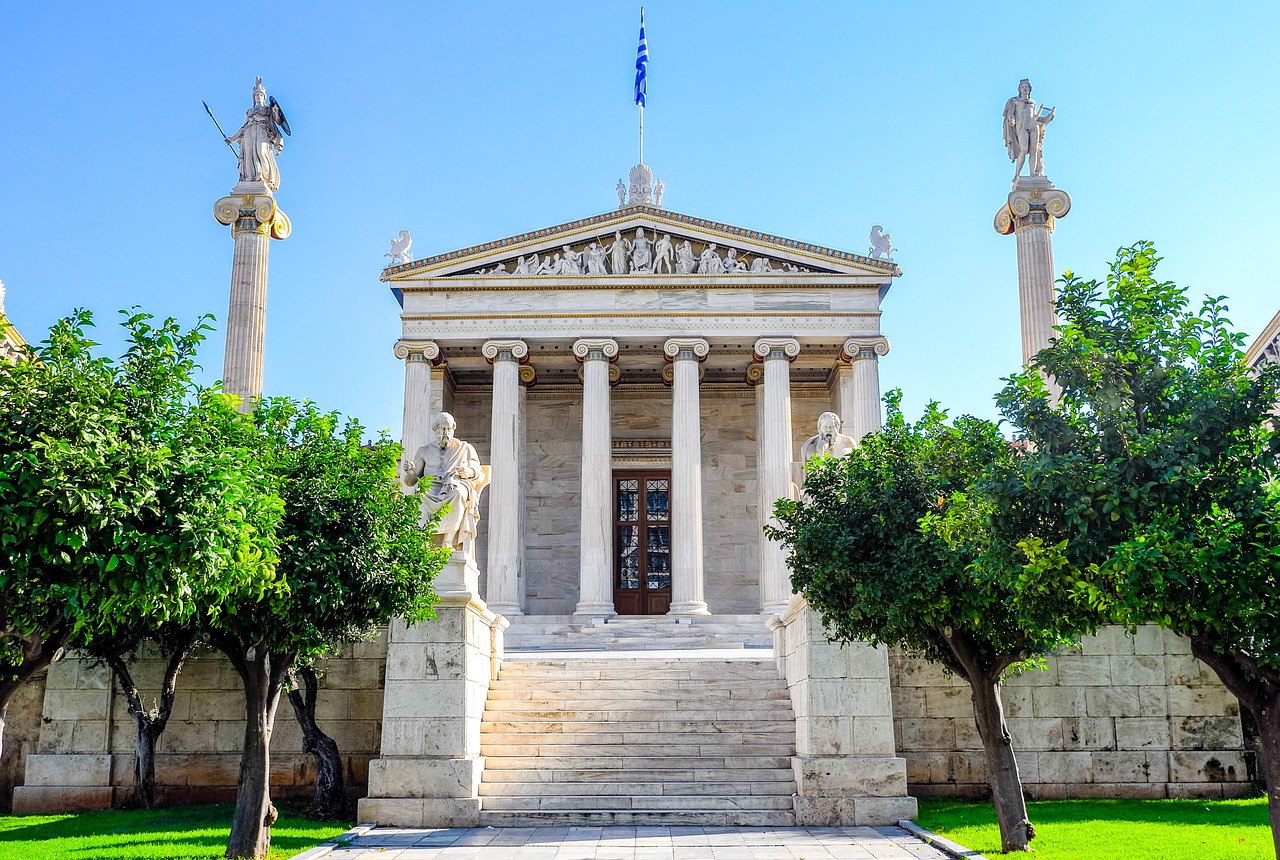
Friedrich Hayek's Contributions
Friedrich Hayek, a towering figure in the realm of economics and political theory, has made profound contributions that resonate deeply within libertarian thought. His ideas primarily revolve around the significance of free markets and the dangers of central planning. Hayek argued that economic systems are incredibly complex and cannot be effectively managed by a central authority. Instead, he believed that the spontaneous order arising from individual actions in a free market leads to better outcomes than any planned economy could achieve.
One of Hayek's most notable works, The Road to Serfdom, serves as a cautionary tale about the potential consequences of government overreach. In this book, he eloquently illustrates how attempts to control the economy can lead to a loss of freedom and the rise of authoritarianism. He posits that when governments intervene in the economy, they inevitably disrupt the natural order of supply and demand, leading to inefficiencies and unintended consequences.
Hayek's concept of spontaneous order is pivotal to understanding his economic philosophy. He believed that individuals, through their interactions in a free market, create complex systems of cooperation and coordination without any central direction. This idea challenges the notion that a central authority can effectively allocate resources or make decisions for the collective good. Instead, Hayek argued that individuals, driven by their own interests, are better suited to make decisions that lead to beneficial outcomes for society as a whole.
Moreover, Hayek emphasized the importance of knowledge in economic decision-making. He contended that knowledge is decentralized, meaning that no single entity possesses all the information necessary to make informed economic choices. This decentralization is a fundamental reason why markets operate more efficiently than planned economies. By allowing individuals to act on their own knowledge and preferences, markets can adapt and respond to changes more effectively than any government could.
In summary, Friedrich Hayek's contributions to libertarian thought are invaluable. His arguments against central planning, advocacy for free markets, and insights into the nature of knowledge and order have shaped modern libertarianism. By championing the idea that individual freedom and responsibility are paramount, Hayek's work continues to inspire those who believe in the power of liberty and the dangers of government intervention.
- What is Friedrich Hayek best known for?
Friedrich Hayek is best known for his defense of free markets and his critiques of central planning, particularly outlined in his book The Road to Serfdom. - How does Hayek's concept of spontaneous order work?
Spontaneous order refers to the natural emergence of order in society from the individual actions of people, rather than from a central authority's planning. - What impact did Hayek have on libertarianism?
Hayek's emphasis on individual liberty, free markets, and limited government has significantly influenced the principles of libertarianism and continues to be relevant in contemporary political discourse.
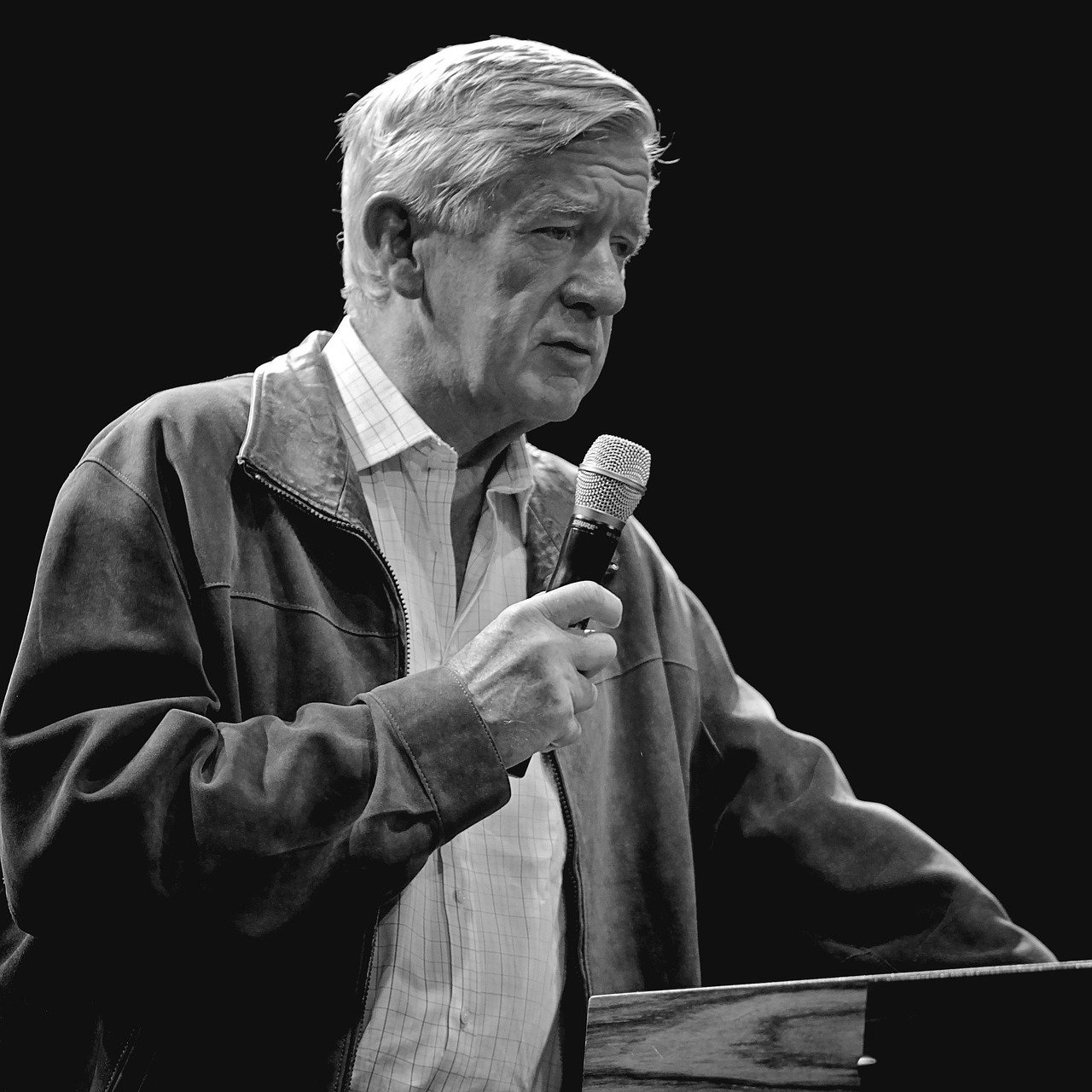
Libertarianism and Government
Libertarianism is often defined by its strong advocacy for minimal government intervention in the lives of individuals. At its core, this political philosophy argues that the state should only exist to protect the rights of individuals, ensuring their freedom to pursue their own interests without unnecessary interference. But what does this really mean in practice? How do libertarians envision the role of government in society? These are questions that spark robust debates among scholars, politicians, and everyday citizens alike.
One of the central tenets of libertarianism is the belief in a limited government. Libertarians argue that the government should primarily focus on three key functions: protecting individual rights, enforcing contracts, and ensuring national defense. This minimalist approach is rooted in the idea that excessive government power can lead to tyranny and oppression. After all, history has shown us that when governments overreach, it often comes at the expense of personal freedoms. To illustrate this point, consider the following:
| Function of Government | Libertarian Perspective |
|---|---|
| Protecting Individual Rights | Government's primary role is to safeguard life, liberty, and property. |
| Enforcing Contracts | Facilitate fair exchanges and uphold agreements between parties. |
| National Defense | Protect the nation from external threats without infringing on personal freedoms. |
However, this vision of minimal government raises important questions about the balance between state power and individual freedom. For instance, how do we ensure that rights are protected without a robust law enforcement system? Libertarians often argue that private entities can handle many functions typically associated with government, such as security and dispute resolution. This leads to a fascinating debate about the effectiveness of privatization versus public provision.
Another crucial aspect of libertarian thought is the Non-Aggression Principle (NAP). This principle posits that aggression, defined as the initiation of force against others, is inherently wrong. Libertarians believe that all interactions should be consensual, and any form of coercion is unacceptable. This ethical stance shapes their views on conflict resolution and governance. For example, if a dispute arises, libertarians would advocate for mediation and negotiation rather than resorting to force or government intervention. This approach not only emphasizes personal responsibility but also fosters a culture of cooperation and voluntary association.
Despite these clear principles, the role of government in protecting rights remains a hotly debated topic among libertarians themselves. Some argue for a minimal state that provides essential services like police and courts, while others advocate for a more radical approach, envisioning a society without any government at all. This divergence leads to various interpretations of libertarianism, often categorized into different strands:
- Minarchism: Advocates for a minimal state focused solely on protecting individual rights.
- Anarcho-Capitalism: Proposes a stateless society where all services, including defense and law enforcement, are provided by the free market.
- Classical Liberalism: Emphasizes individual liberty but supports a more active role for government in ensuring social welfare and economic stability.
In conclusion, the relationship between libertarianism and government is complex and multifaceted. While the ideology champions individual freedom and minimal state intervention, it also grapples with the practical implications of protecting rights in a diverse society. As we navigate these discussions, it's vital to consider the balance between liberty and order, ensuring that the pursuit of personal freedom does not come at the expense of the common good.
What is the Non-Aggression Principle?
The Non-Aggression Principle (NAP) is a foundational ethic in libertarianism that asserts that aggression against others is inherently wrong. It promotes the idea that all interactions should be consensual.
Do libertarians support any form of government?
Yes, many libertarians support a minimal government that focuses on protecting individual rights, enforcing contracts, and providing national defense, while others advocate for a completely stateless society.
How do libertarians view social services?
Libertarians generally believe that social services should be provided by private entities rather than the government, arguing that the free market can better meet individuals' needs without coercion.
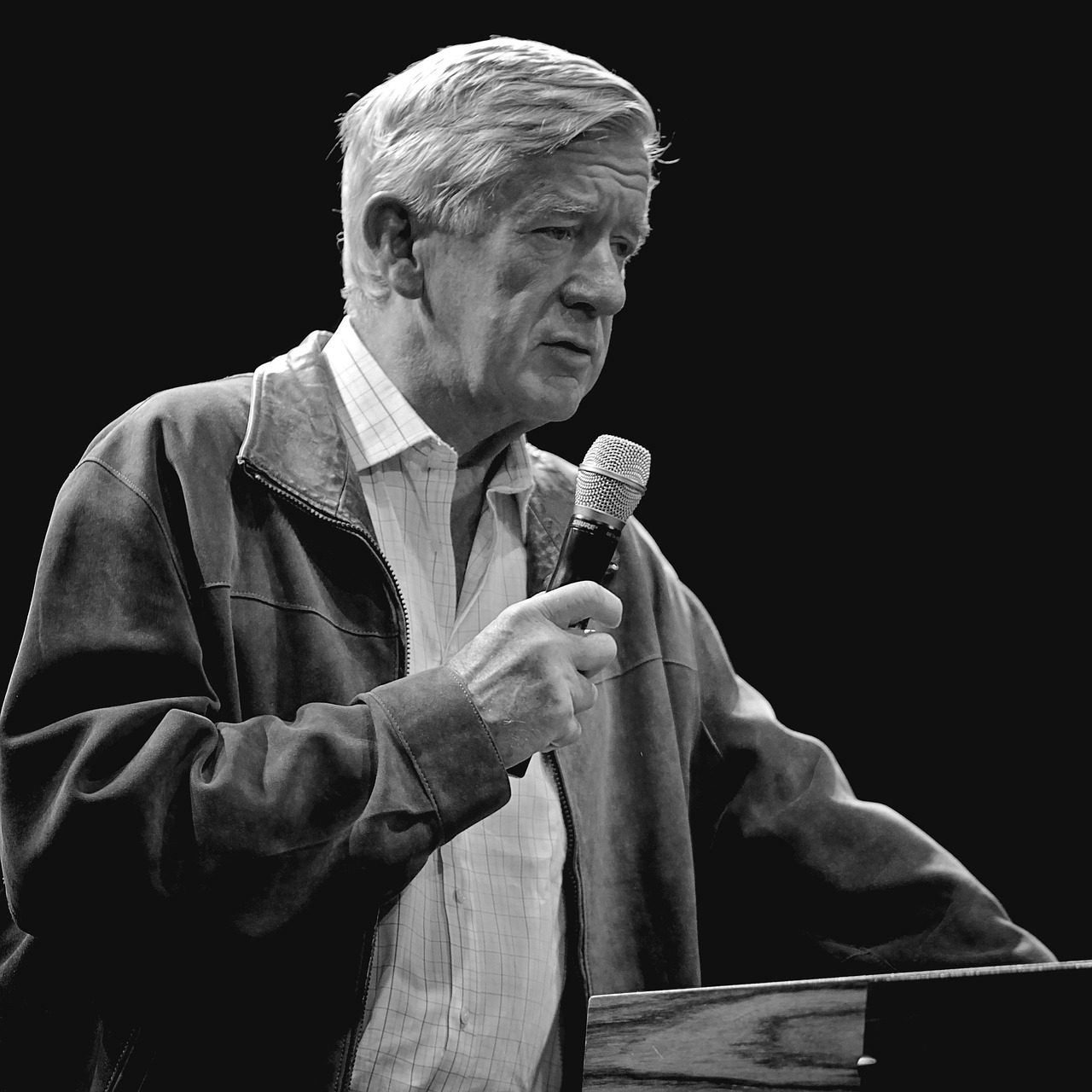
Non-Aggression Principle
The Non-Aggression Principle (NAP) is often heralded as the bedrock of libertarian ethics. At its core, the NAP asserts that aggression, defined as the initiation of force against another person or their property, is inherently wrong. This principle is not just a moral guideline; it serves as a fundamental rule for social interactions and governance within a libertarian framework. Imagine a world where every interaction is voluntary and consensual, where disputes are resolved through dialogue rather than coercion. This is the ideal that the NAP strives to achieve.
To further understand its significance, let’s break down the implications of the NAP in everyday life. When we say that aggression is wrong, we’re not just talking about physical violence; we’re also referring to the use of threats, fraud, and coercive actions that infringe upon individual rights. The NAP encourages individuals to engage with one another in a manner that respects personal autonomy and property rights. In a sense, it acts as a moral compass, guiding people towards peaceful coexistence.
Consider the following scenarios where the NAP comes into play:
- Personal Relationships: In friendships or partnerships, the NAP encourages open communication and mutual respect. If one party feels wronged, they are encouraged to discuss their feelings rather than resorting to manipulation or coercion.
- Business Transactions: In the marketplace, the NAP promotes voluntary exchanges. Every transaction should be mutually beneficial, where both parties agree to the terms without any pressure or deceit.
- Political Discourse: The NAP challenges the legitimacy of government actions that infringe upon individual rights. It raises questions about taxation, laws, and regulations that may be seen as coercive rather than consensual.
The NAP also plays a crucial role in shaping libertarian views on conflict resolution. Instead of resorting to violence or state intervention, libertarians advocate for mediation and negotiation as means to resolve disputes. This approach not only preserves individual rights but also fosters a culture of respect and understanding. For instance, if two neighbors have a disagreement over property boundaries, the NAP encourages them to seek a peaceful resolution rather than escalating the situation into a legal battle.
It's important to note that while the NAP is a guiding principle, it does not imply that individuals should tolerate aggression. Libertarians believe in the right to defend oneself and one’s property against aggression. This defensive stance is crucial in maintaining the balance between personal freedom and the protection of rights. In essence, the NAP is about promoting a society where individuals are free to pursue their interests as long as they do not infringe upon the rights of others.
In conclusion, the Non-Aggression Principle is not just a theoretical concept; it is a practical framework that influences how libertarians view ethics, governance, and social interactions. By advocating for peaceful coexistence and mutual respect, the NAP offers a compelling vision of a society built on individual liberty and personal responsibility. It invites us to reflect on our own actions and consider how we can contribute to a more harmonious world.
- What is the Non-Aggression Principle?
The Non-Aggression Principle is a moral stance that asserts that aggression against another individual or their property is inherently wrong. - How does the NAP apply to personal relationships?
The NAP encourages open communication and mutual respect, promoting peaceful resolutions rather than manipulation or coercion. - Can the NAP justify self-defense?
Yes, the NAP allows for self-defense against aggression, emphasizing the right to protect oneself and one’s property. - Is the NAP applicable in political discourse?
Absolutely! The NAP challenges government actions that infringe on individual rights and promotes voluntary interactions over coercive measures.
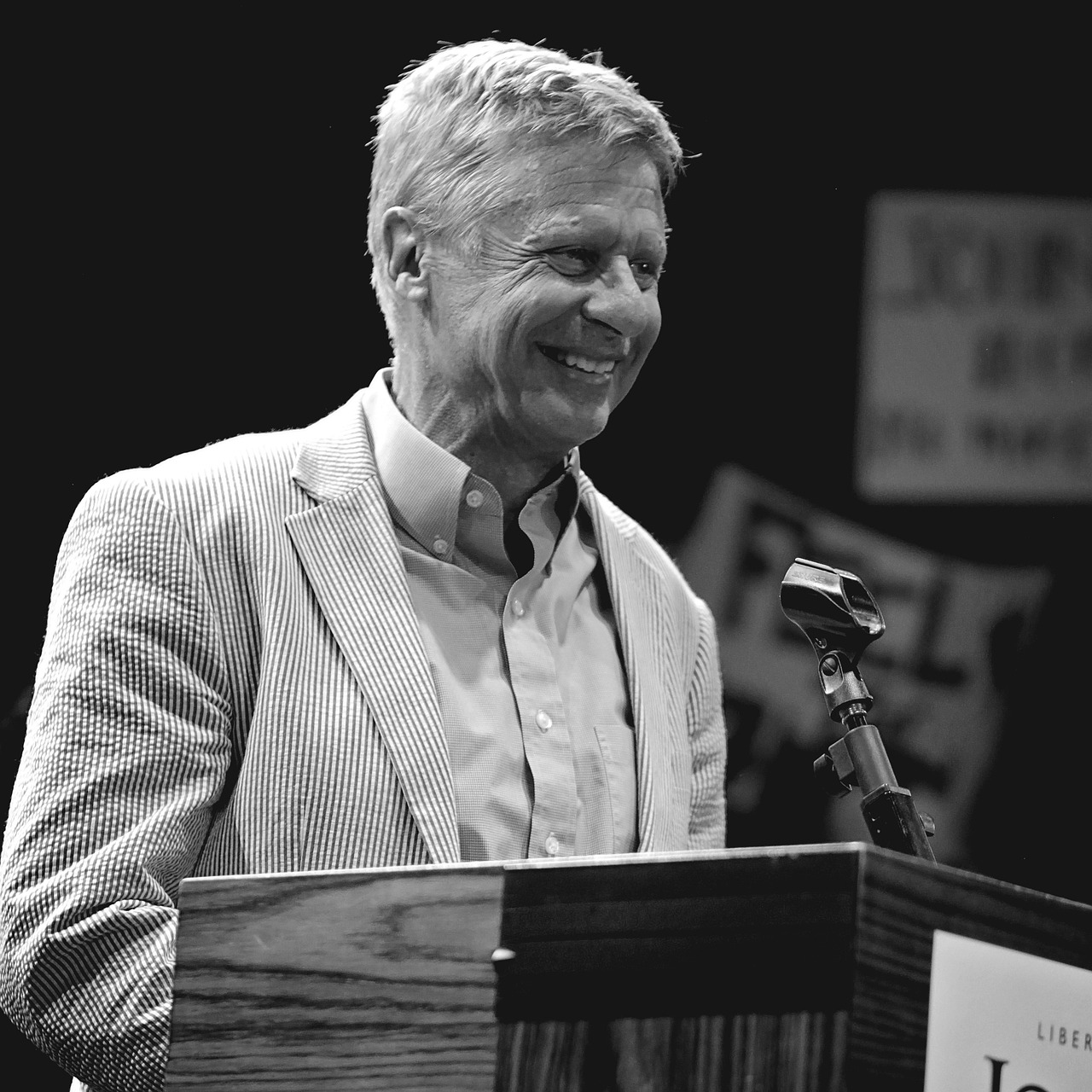
Debates on Government Role
The role of government in a libertarian framework is a hotbed of discussion and sometimes contention. At its core, libertarianism champions the idea that **individual freedom** should reign supreme, but how does this principle align with the need for government? This question sparks a myriad of debates among libertarians themselves. Some argue for a **minimalist government**, while others contend that certain functions are essential and should be maintained by the state.
One of the most significant areas of contention revolves around the concept of **law enforcement**. On one hand, many libertarians believe that the government should have a minimal role in policing, advocating for a system where private security firms could handle most law enforcement duties. They argue that competition among these firms would lead to better service and accountability. On the other hand, some libertarians maintain that a **centralized police force** is necessary to protect individual rights and ensure justice. They fear that without some form of government oversight, the potential for abuse and corruption in private security could run rampant.
Another pivotal debate concerns **national defense**. Libertarians generally agree that protecting the nation is a legitimate function of government, but the methods and extent of this defense are fiercely debated. Some libertarians advocate for a **non-interventionist foreign policy**, arguing that military actions often lead to unnecessary entanglements and violations of individual freedoms. Conversely, others argue that a strong national defense is vital to safeguard the nation from external threats and that a robust military presence can deter aggression.
Then there’s the issue of **public goods**. Libertarians often face the dilemma of how to provide essential services like roads, education, and healthcare without extensive government involvement. While some propose that the private sector can efficiently handle these areas, others suggest that certain public goods are necessary for a functioning society and should thus be funded and managed by the government. This debate raises important questions: Can the market provide essential services without leaving the most vulnerable behind? Or is there a role for government in ensuring that all citizens have access to basic needs?
Ultimately, these debates reflect the broader tension within libertarianism between the ideals of **freedom** and the practical realities of governance. As society evolves, so too do the discussions surrounding the appropriate role of government. Libertarians must grapple with these complex questions, balancing their commitment to individual liberty with the necessity of some form of governance. This ongoing dialogue is crucial for the future of libertarian thought and its application in political discourse.
- What is the main principle of libertarianism? Libertarianism primarily emphasizes individual liberty and personal responsibility.
- Do libertarians support any form of government? Yes, many libertarians support a minimal government that protects individual rights but limits intervention in personal and economic matters.
- How do libertarians view law enforcement? Opinions vary; some advocate for privatized law enforcement, while others support a minimal state police force to protect rights.
- What is the libertarian stance on national defense? Many libertarians favor a non-interventionist approach but agree that some form of national defense is necessary.
- Can public goods be provided without government? This is debated; some believe the private sector can handle public goods, while others argue for government involvement to ensure access for all.
Frequently Asked Questions
- What is libertarianism?
Libertarianism is a political philosophy that emphasizes individual liberty, personal responsibility, and minimal government intervention in both personal and economic matters. It advocates for the protection of individual rights and freedoms, allowing people to make their own choices without coercion.
- Who are the key thinkers in libertarian philosophy?
Some of the most influential figures in libertarian thought include John Locke and Friedrich Hayek. Locke's ideas on natural rights and government consent laid the groundwork for individual liberty, while Hayek emphasized the importance of free markets and spontaneous order in economic systems.
- What is the non-aggression principle?
The non-aggression principle is a foundational ethical stance in libertarianism that asserts that aggression against another person or their property is inherently wrong. It guides libertarians in their views on conflict resolution and the use of force, advocating for peaceful interactions and voluntary agreements.
- How does libertarianism view government intervention?
Libertarianism generally advocates for minimal government intervention in both personal lives and the economy. It argues that government should primarily focus on protecting individual rights and freedoms, while limiting its role in areas like law enforcement, national defense, and public goods.
- What are property rights in libertarian thought?
Property rights are a crucial aspect of libertarian philosophy, rooted in John Locke's theories. Libertarians believe that individuals have the right to own and control property, and that these rights are essential for personal freedom and societal prosperity. The justification for property rights is often linked to the labor and effort one invests in acquiring and maintaining property.
- What is social contract theory in libertarianism?
Social contract theory, particularly as articulated by John Locke, posits that individuals consent to form a government to protect their natural rights. This theory is central to libertarianism, as it emphasizes that legitimate government authority arises from the consent of the governed, and any government that oversteps its bounds is deemed illegitimate.
- How do libertarians view public goods?
Libertarians often debate the role of government in providing public goods, such as roads and national defense. While some argue that these goods can be provided through voluntary means and private enterprise, others acknowledge a limited role for government in ensuring these services are available without infringing on individual freedoms.







